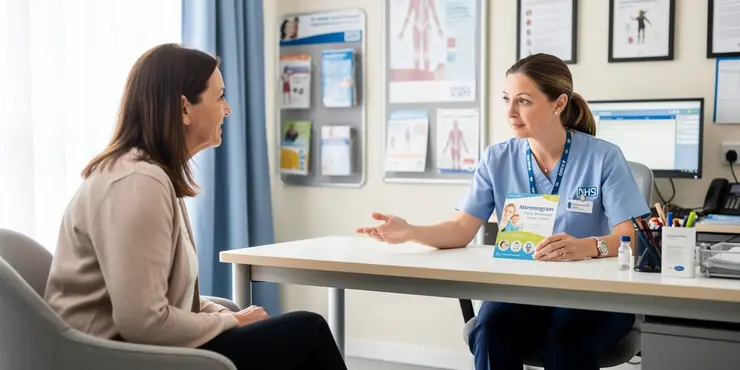
Find Help
More Items From Ergsy search
-
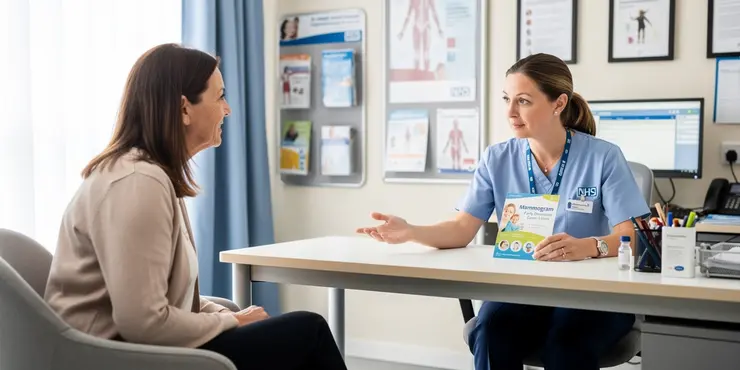
At what age should I start having mammograms?
Relevance: 100%
-
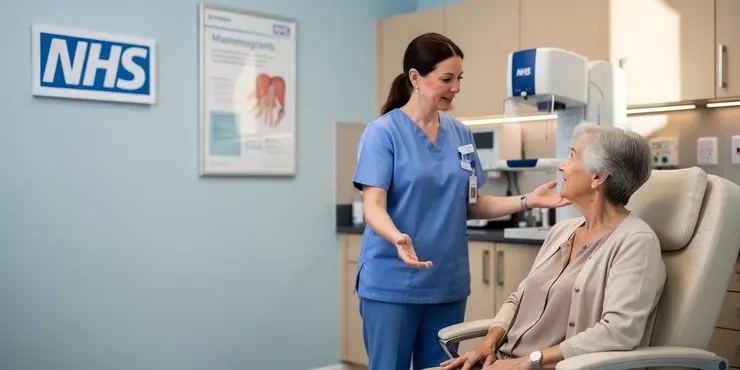
Mammograms
Relevance: 93%
-
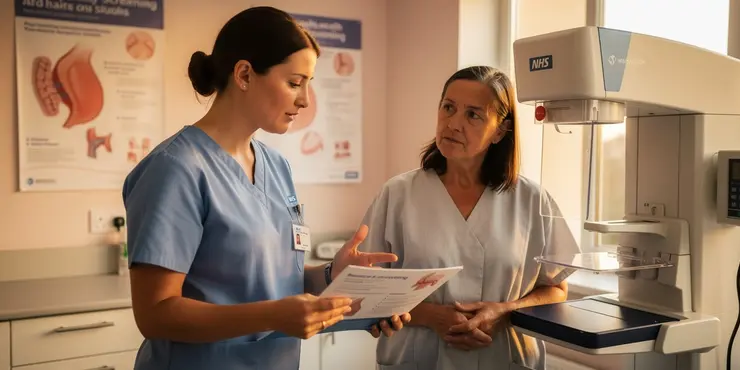
What is a mammogram?
Relevance: 88%
-
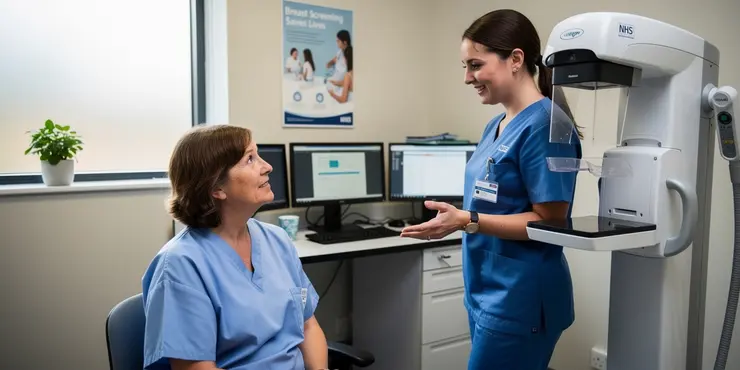
What is a mammogram?
Relevance: 87%
-
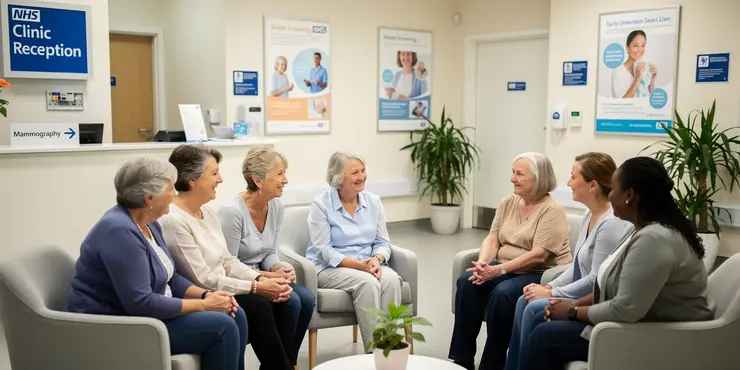
Are mammograms free on the NHS?
Relevance: 87%
-
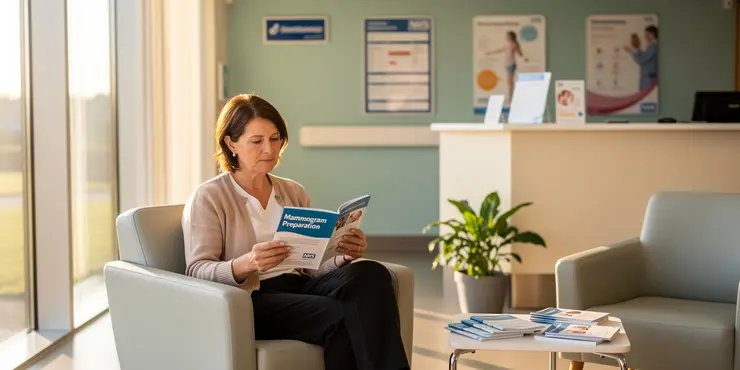
How do I prepare for a mammogram?
Relevance: 85%
-
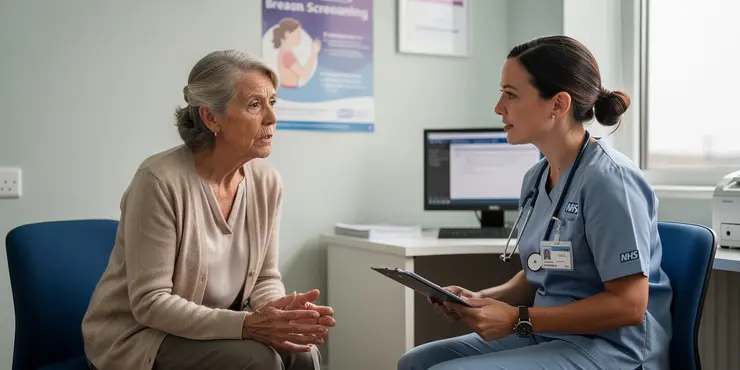
How reliable are mammograms?
Relevance: 83%
-
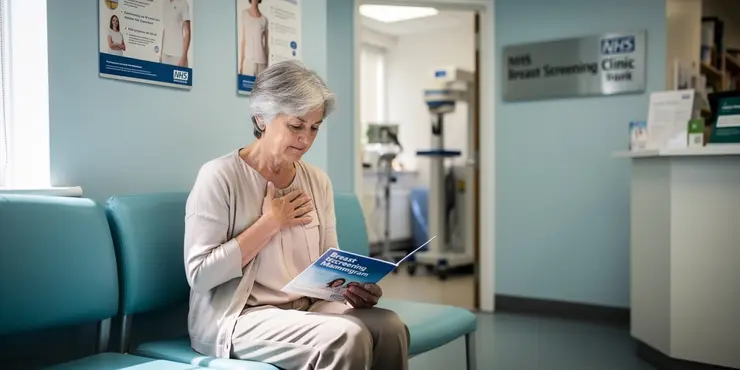
Is a mammogram painful?
Relevance: 82%
-
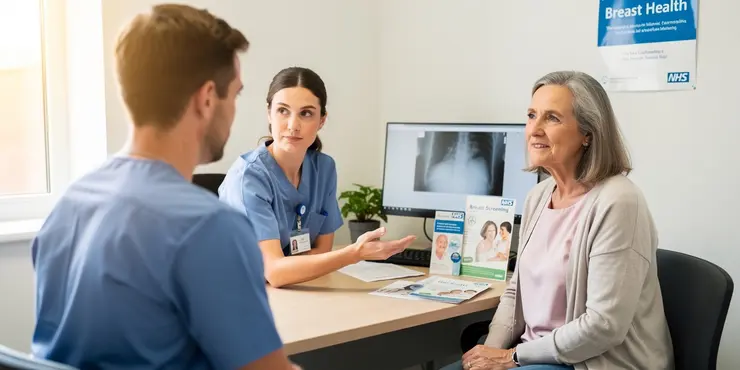
What are the benefits of regular mammograms?
Relevance: 82%
-
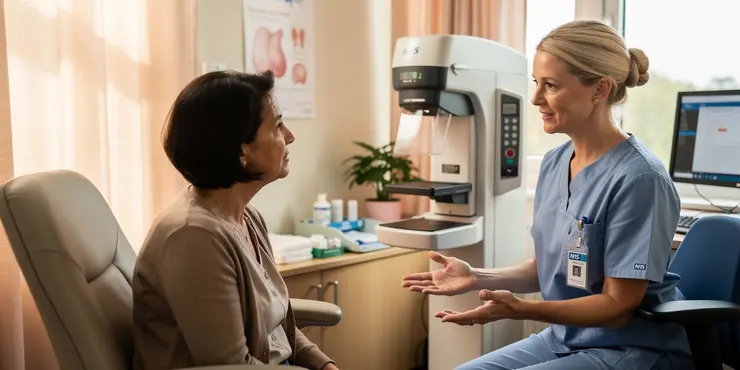
What happens during a mammogram?
Relevance: 82%
-
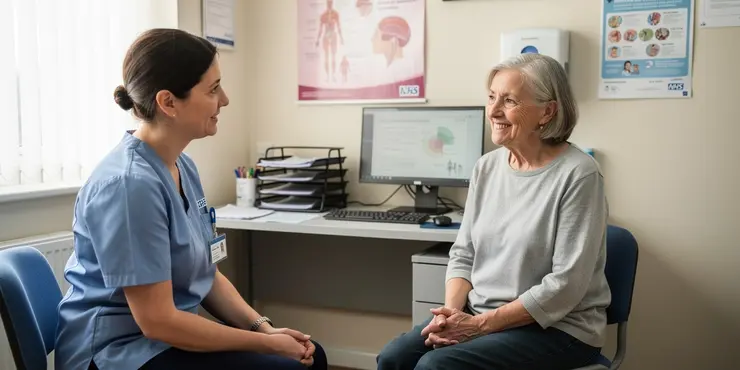
How often should I get a mammogram?
Relevance: 82%
-
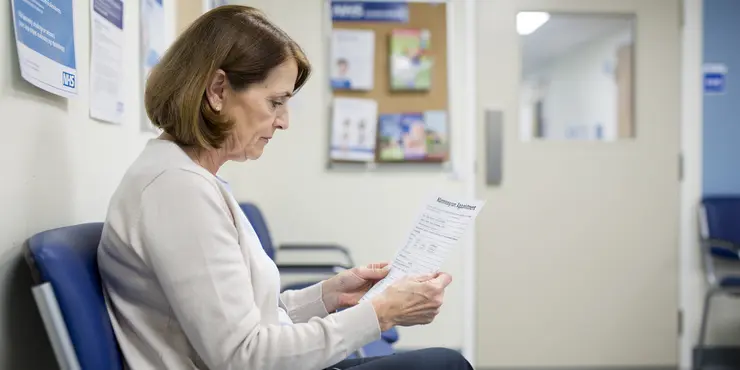
How do I book a mammogram?
Relevance: 82%
-
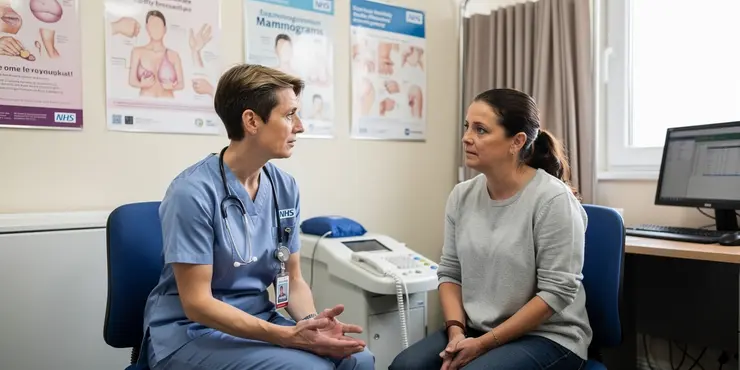
Are there any risks associated with mammograms?
Relevance: 79%
-
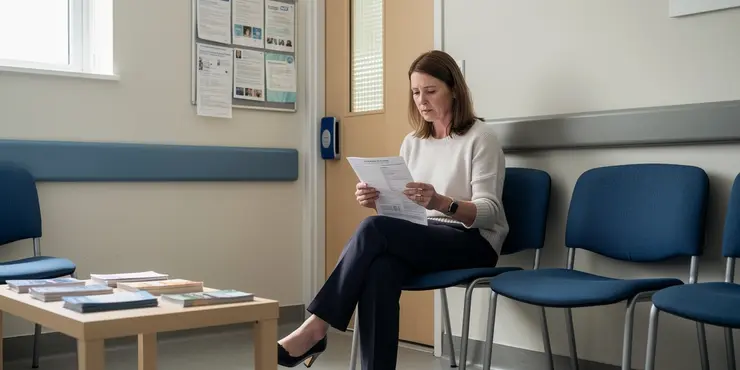
What if my mammogram results are abnormal?
Relevance: 77%
-
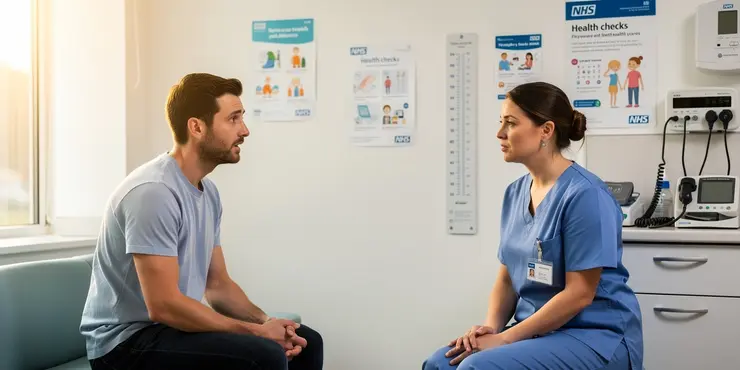
Can men have mammograms?
Relevance: 76%
-
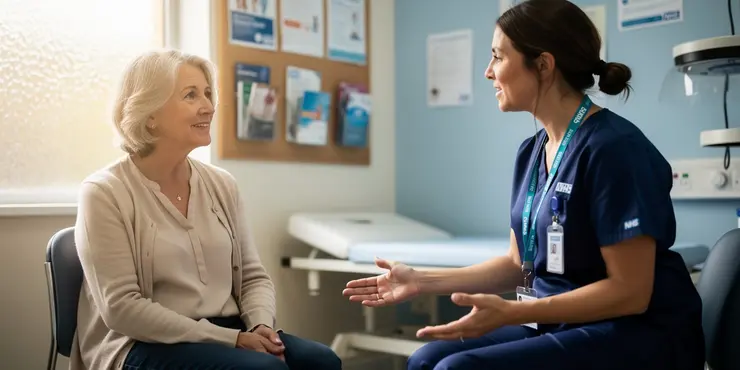
Can I have a mammogram if I have breast implants?
Relevance: 74%
-
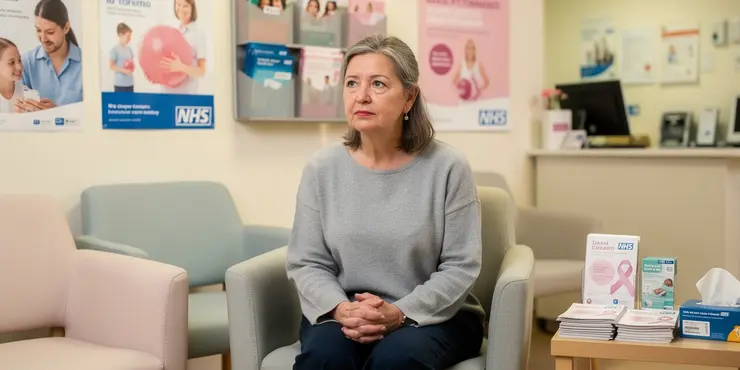
NHS breast cancer screening
Relevance: 43%
-
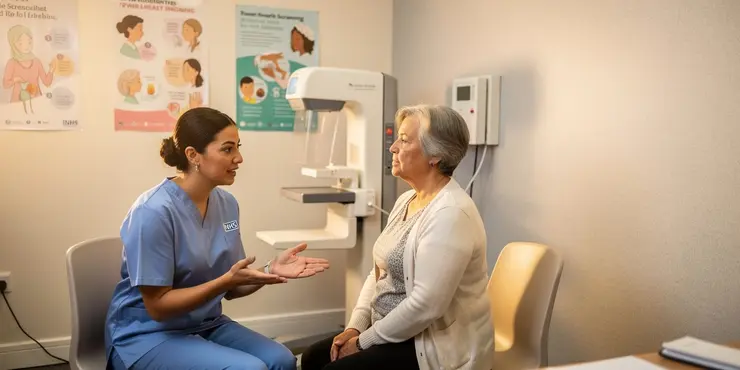
Tower Hamlets breast screening programme
Relevance: 42%
-
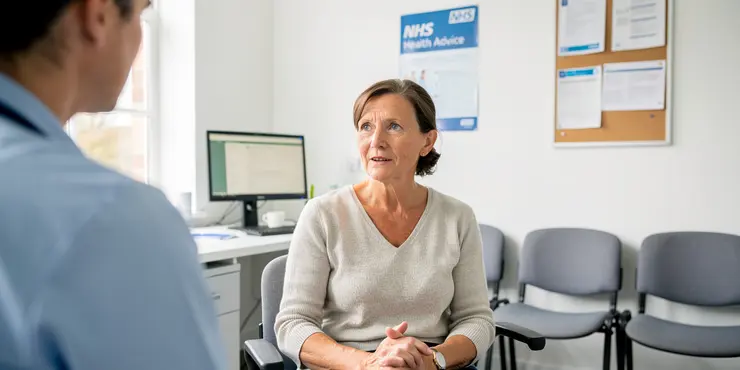
Is health linked to aging?
Relevance: 39%
-
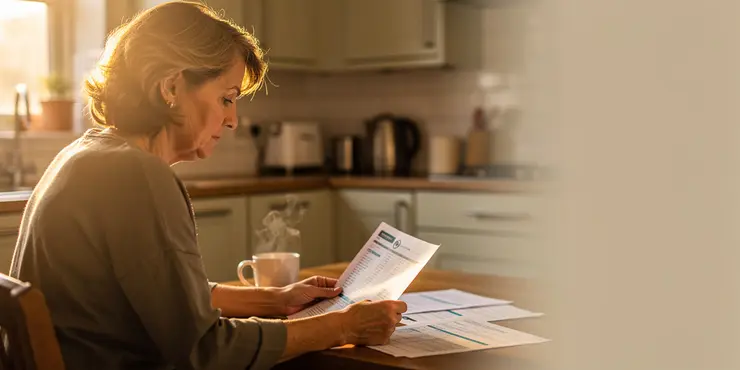
What age group will first see the state pension age at 67?
Relevance: 38%
-
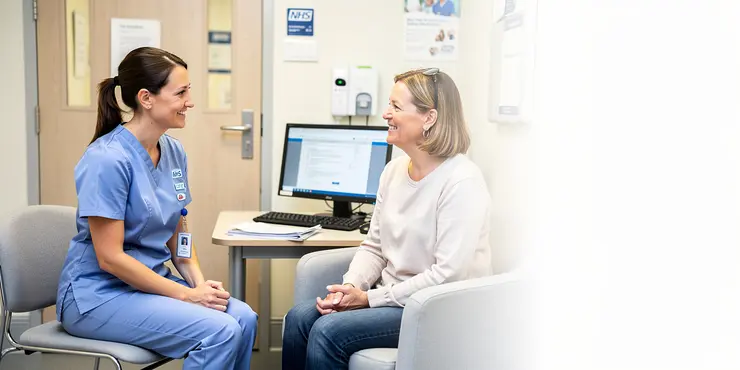
Health Screenings You Should Know About
Relevance: 36%
-

Can eczema improve with age?
Relevance: 36%
-
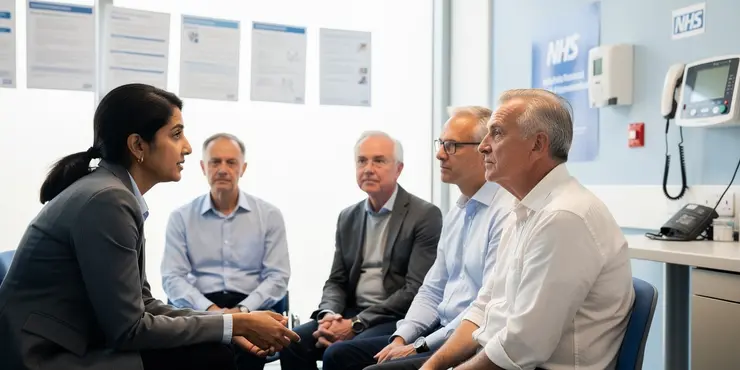
Are men and women's pension ages equalized?
Relevance: 35%
-
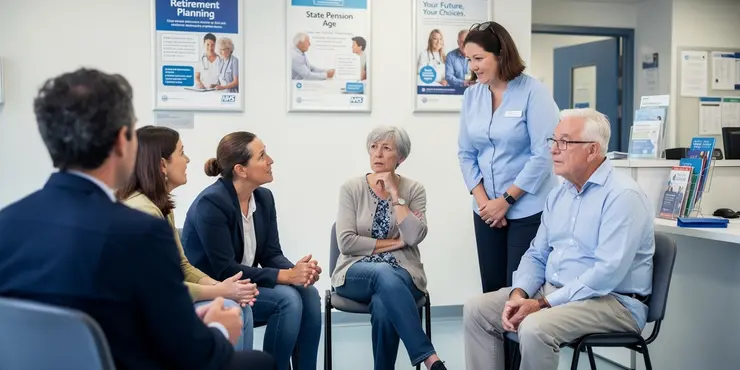
What is the state pension age in the UK in 2026?
Relevance: 35%
-
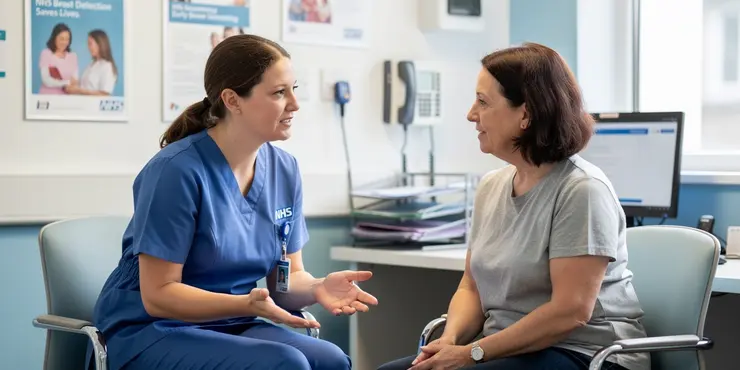
Breast cancer: testing and treatment | NHS
Relevance: 35%
-
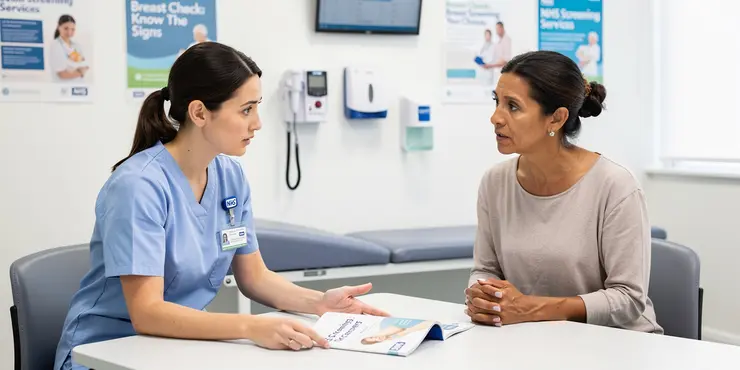
Other Things You Need to Know About Breast Screening
Relevance: 35%
-
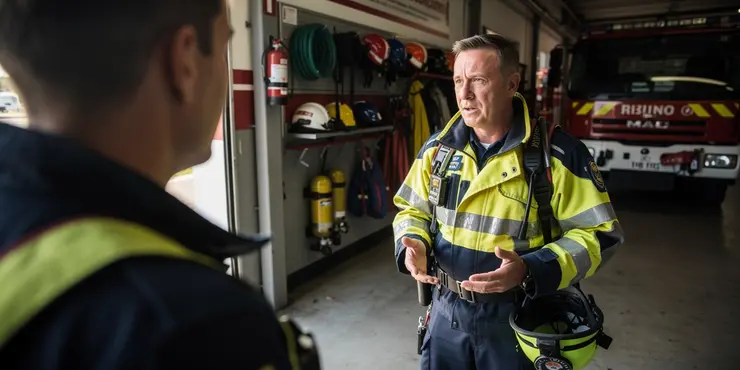
What is the normal pension age for firefighters in the UK?
Relevance: 35%
-
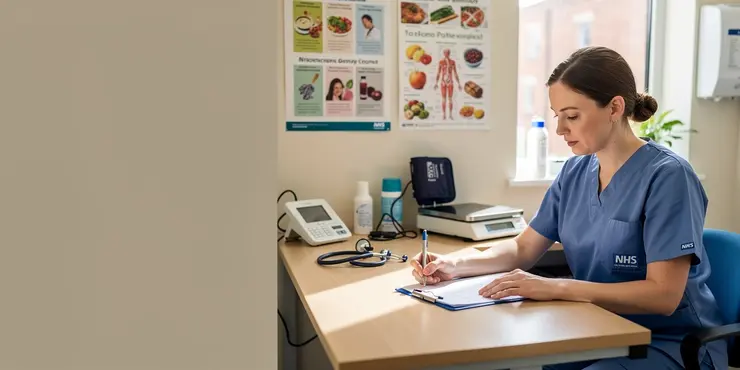
Is gut health linked to the aging process?
Relevance: 35%
-

Is there a specific age requirement for Hyrox participants?
Relevance: 35%
-
Is there an age limit for receiving blood transfusions?
Relevance: 34%
-
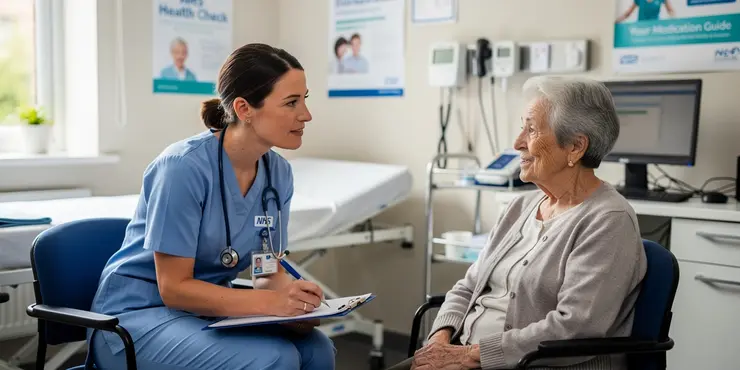
Are there any changes to the state pension age in 2026?
Relevance: 34%
-
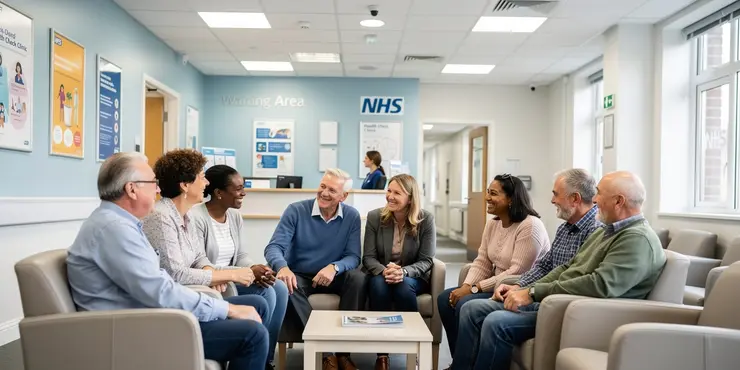
What are the state pension age changes in 2026 in the UK?
Relevance: 34%
-
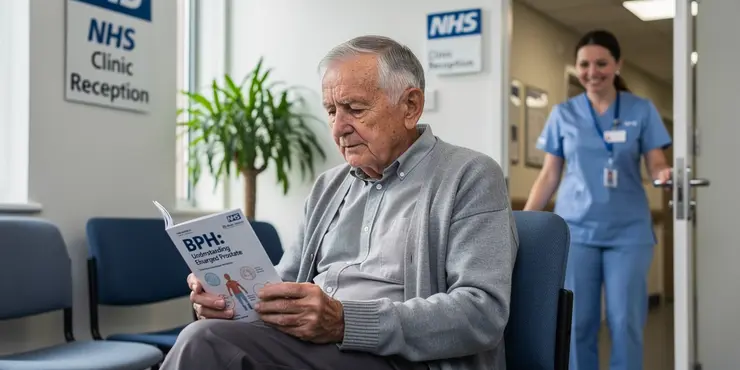
How does age affect the risk of BPH?
Relevance: 33%
-
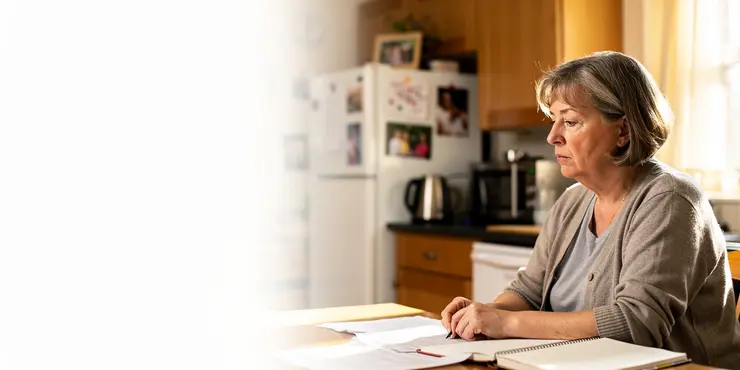
When will the state pension age increase to 67?
Relevance: 33%
-
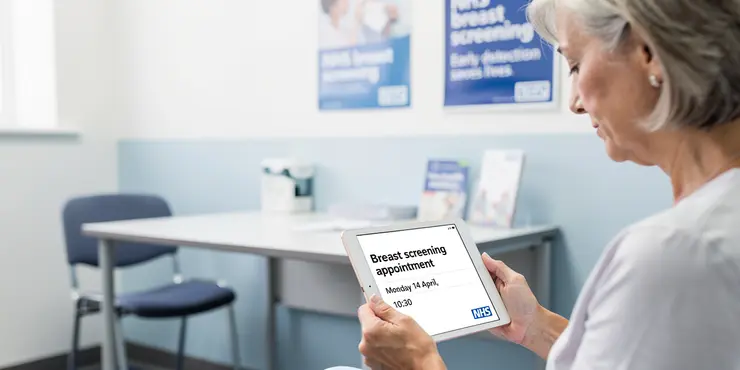
How often should I get screened for breast cancer?
Relevance: 33%
-
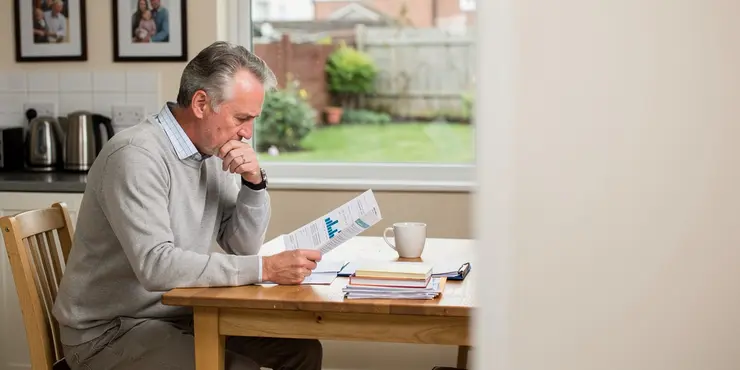
Will the state pension amount change with the age increase?
Relevance: 33%
-

The Importance of Sleep for All Ages
Relevance: 33%
-
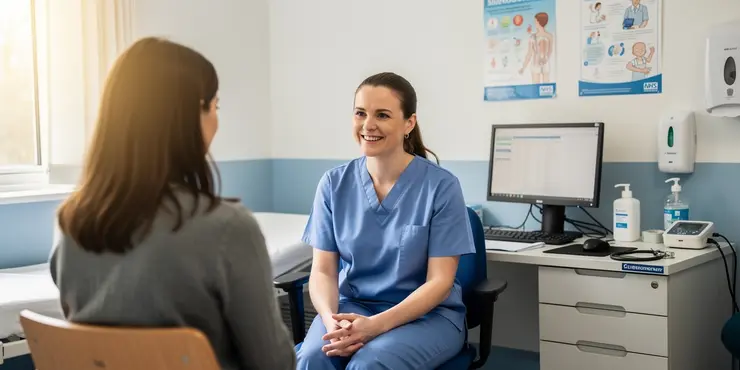
Is there a minimum age requirement to play the Postcode Lottery?
Relevance: 33%
-
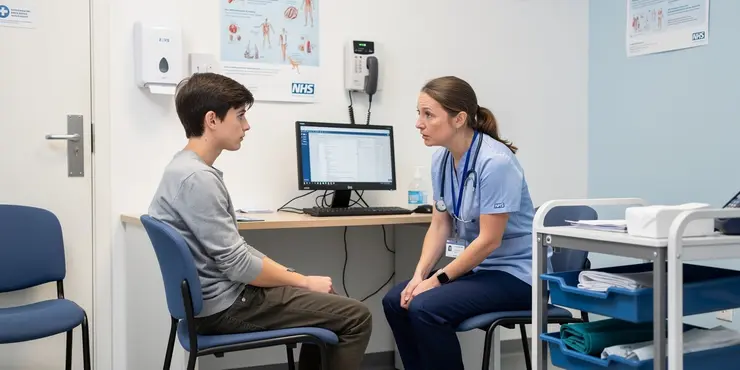
Is appendicitis common in any particular age group?
Relevance: 33%
-

Is asthma more common in certain age groups?
Relevance: 33%
Understanding Mammograms
Mammograms are specialized X-ray examinations designed to detect abnormalities in breast tissue, most importantly, early signs of breast cancer. They are a crucial part of women's healthcare, allowing for early diagnosis and more successful treatment of breast cancer.
Standard Guidelines in the UK
In the United Kingdom, the NHS Breast Screening Programme offers mammograms to women aged 50 to 70 every three years. This service is part of a population-based screening effort aimed at early detection of breast cancer in the age group where risk is more significant and mammograms have been shown to be most effective.
Breast Screening Age Range Extension
Recent initiatives have looked into extending the breast screening age range to include women aged 47 to 73. However, this extended range may not be uniformly available yet across different regions. The goal is to gradually make this early and extended screening available to help detect any signs of cancer earlier across a wider age group.
Under 50: Assessing Individual Risk
For women under 50, routine mammograms are not typically offered as part of regular screening. However, those with a family history of breast cancer or other risk factors might be advised by their GP to begin screening earlier. If you have concerns about your breast health or family history, it is crucial to consult with your doctor to discuss whether early screening is appropriate for you.
Over 70: Continuing Awareness
Women over the age of 70 are not automatically invited for screenings, but they can request mammograms through their GP or local breast screening unit. Although the risk of breast cancer continues to rise with age, participation rates within this group tend to decline. It remains important for women of this age to remain vigilant about breast health and continue to take advantage of screening services that are available.
Technology and Evolving Recommendations
Advances in technology and more sophisticated understanding of breast cancer risks have resulted in evolving recommendations regarding mammogram screenings. Digital mammography and the potential use of 3D imaging may further impact age-related screening protocols in the future. It is essential to stay informed about any changes or updates in guidelines that could influence screening age or frequency.
Conclusion
Determining when to start having mammograms in the UK depends on a combination of age, personal risk factors, and public health recommendations. While the standard starting age is 50, individual circumstances such as family history may necessitate an earlier start. Regardless of age, maintaining breast awareness and seeking professional medical advice if concerns arise will remain critical components of effective health care.
Understanding Mammograms
Mammograms are special X-ray pictures. They look for changes in the breast that might mean cancer. These tests help find breast cancer early. Early detection means treatment works better.
Standard Guidelines in the UK
In the UK, women aged 50 to 70 can have a mammogram every three years. The NHS offers these tests to find breast cancer early. After 50, the chance of breast cancer is higher, so these tests are very important.
Breast Screening Age Range Extension
Doctors are thinking about offering mammograms to women aged 47 to 73. This change is not everywhere yet. The aim is to help more women find any signs of cancer early.
Under 50: Assessing Individual Risk
Women under 50 usually do not get mammograms regularly. But if breast cancer runs in the family, a doctor might suggest starting earlier. If worried, talk to your doctor about your concerns and risk.
Over 70: Continuing Awareness
Women over 70 can still have mammograms if they ask. They need to talk to their doctor or go to a breast screening unit. Breast cancer risk goes up with age. It's important for older women to keep checking their breast health.
Technology and Evolving Recommendations
New technology helps doctors understand breast cancer better. Changes like 3D imaging may change how and when we do mammograms. It's good to stay updated on new advice about screenings.
Conclusion
In the UK, women usually start mammograms at age 50. But personal risks, like family history, can mean starting earlier. Whatever your age, knowing your breast health and talking to your doctor if worried is very important.
Frequently Asked Questions
At what age should I start having mammograms?
Most guidelines recommend starting regular mammograms at age 40 to 50 for women at average risk.
Are there circumstances where I should start mammograms earlier than 40?
Yes, women with a family history of breast cancer or genetic mutations like BRCA1/BRCA2 may need to start earlier.
If I am at high risk, when should I begin mammogram screenings?
Women at high risk may begin screenings as early as age 30, but this should be discussed with a healthcare provider.
How often should I get mammograms?
Women aged 50 to 74 are generally advised to have a mammogram every two years, but frequency can vary based on specific risk factors.
Is there an age when I should stop getting mammograms?
Screening may be stopped around age 75, but this decision should be personalized and based on factors like overall health.
What are the current mammogram guidelines for women in their 40s?
Some organizations recommend starting at age 40, while others suggest discussing risks and benefits with a healthcare provider to decide.
Is there a universal agreement on when to start mammograms?
No, guidelines vary between organizations, so it is important to consult with a healthcare provider for the best personal decision.
Can I have a mammogram before the recommended starting age of 40?
Yes, but it's usually based on specific concerns or family history and should be discussed with a healthcare provider.
Why do some guidelines suggest waiting until 50 to start mammograms?
This is due to a balance between the benefits and harms of screening, with some evidence suggesting fewer false positives and overdiagnosis at this age.
How do personal risk factors influence when to start mammograms?
Factors like family history, genetic predispositions, and personal health history can affect the timing and frequency of mammograms.
What role does family history play in deciding mammogram timing?
A strong family history of breast cancer may necessitate earlier and more frequent screenings.
If I'm under 40 and find a lump, should I get a mammogram?
Yes, any breast changes should be evaluated by a healthcare provider, who may recommend a mammogram regardless of age.
What are the risks of starting mammograms too early?
Potential risks include false positives, unnecessary biopsies, and overdiagnosis.
Do mammogram guidelines change for women with dense breast tissue?
Women with dense breasts may need additional screening techniques, and this should be discussed with a healthcare provider.
How do health insurance plans affect when I can start mammograms?
Insurance coverage for mammograms can vary, so it's best to check with your provider for specifics based on age and risk.
Can men have mammograms, and at what age?
Mammograms for men are rare but may be recommended if there is a strong family history or genetic risk.
Are digital mammograms different in terms of when to start screening?
The type of mammogram doesn't typically affect the recommended starting age, but consult your doctor for specifics.
Why is there so much debate about the right age to start mammograms?
The debate exists because of differing opinions on the balance of benefits, such as early detection, versus risks like overdiagnosis.
What advancements are there in mammography that affect when to start?
Advancements like 3D mammography offer better detection rates, which may influence guidelines in the future.
Should I consider other types of breast screening besides mammograms?
Depending on risk factors, additional screenings like MRIs or ultrasounds may be recommended alongside or instead of mammograms.
When should I start getting breast check-ups?
Breast check-ups are called mammograms. They help to make sure your breasts are healthy.
Most people should start getting mammograms at age 40. You might need one sooner if breast cancer runs in your family. Talk to your doctor to know what is best for you.
If reading is hard, ask someone to read with you. Using pictures and talking about the steps can help understand better.
Most doctors say women should start getting regular breast checks (mammograms) between age 40 and 50 if they have average risk.
Should I get a mammogram before I turn 40?
A mammogram is a special picture of the breast. Doctors use it to check for lumps or changes. Usually, women start having mammograms at age 40. But sometimes, it can be important to start earlier.
If someone in your family had breast cancer, you might need a mammogram earlier. Talk to your doctor if you are worried. They can tell you what is best for you.
If reading is hard, you can ask for help. A friend, family member, or a doctor can explain things to you. You can also use tools that read text out loud.
Yes, some women might need to start earlier. This is if breast cancer is in their family. Or if they have changes in their genes, like BRCA1 or BRCA2.
When should I start getting mammogram tests if I am at high risk?
If a woman is at high risk, she might need to start getting checked at age 30. It's important to talk to a doctor about this.
How often should I have a breast check-up (mammogram)?
You should ask your doctor about how often to have a breast check-up. It might be every year or every two years. Your doctor can tell you what is best for you.
Tools that can help:
- Ask a family member or friend to go with you to the doctor.
- Write down questions to ask the doctor.
- Use a calendar to remember your check-up dates.
Women aged 50 to 74 should usually have a breast check (called a mammogram) every two years. But sometimes, they might need a check more often because of different health reasons.
When should I stop having breast check-ups?
You might wonder if you should stop having breast check-ups at a certain age. Doctors say it depends on your health and age. It's good to talk to your doctor about what's best for you.
Breast check-ups are good for finding problems early. Ask your doctor when you should have them. They can help you decide.
Using picture cards or videos can help you understand more about breast check-ups.
You might stop having screenings when you are about 75 years old. But this choice depends on your health and should be made just for you.
What are the rules for getting a mammogram if you are a woman in your 40s?
If you are a woman in your 40s, you should talk to your doctor about mammograms. A mammogram is a special X-ray of the breast to check for cancer.
Some doctors say women in their 40s should get a mammogram every 1 or 2 years. This helps to catch any problems early.
Ask your doctor what is best for you. You can make a plan together.
If reading is hard, ask someone to read this with you.
You can also use tools to read the text out loud.
Some groups say to start at age 40. Others say to talk with a doctor so you can decide what is best for you.
Do doctors all agree on when women should start having breast checks?
No, different groups have different rules. It is important to talk to a doctor to make the best choice for you.
Can I get a breast X-ray before I am 40 years old?
You might want a breast check before 40. Talk to your doctor. They can help decide. X-rays like this are for looking inside your breasts. They are called mammograms. Doctors usually start these checks at 40. There are reasons to have one earlier. Your doctor can explain.
Here are some tips:
- Ask questions if you do not understand.
- Take a friend or family member with you.
- Write down what the doctor says.
Yes, you can. But it's important to talk about it with your doctor. They will know if you need it based on your family's health or other reasons.
Why do some doctors say to start mammograms at age 50?
Mammograms are special pictures of the inside of the breast. They help find cancer early. Some doctors say to start having these pictures at age 50. Here’s why:
- When you’re older, the chance of getting breast cancer is higher.
- Sometimes the pictures can find things that are not a problem. This can cause worry or extra tests.
If you need help reading, try these tips:
- Ask someone to read with you.
- Use a highlighter to mark important words.
- Take breaks if the information feels like too much.
Screening has good and bad sides. At this age, it seems to cause fewer mistakes and fewer people are told they are sick when they are not.
How do personal risk factors affect when to start breast screening tests?
People have different health needs. This can change when they start having breast checks called mammograms.
Some people might need to start breast checks earlier because of:
- Family history of breast cancer: If your family members had breast cancer, you may start checks sooner.
- Genetic factors: Some genes make breast cancer more likely.
- Personal health history: If you had health issues before, you might need earlier checks.
It’s important to talk to a doctor. They can help decide the best time for you to start checks. You can ask lots of questions.
Here are some ways to learn more and feel less worried:
- Use pictures and videos to understand better.
- Bring a friend or family member to appointments.
- Write down questions you want to ask the doctor.
When you have a mammogram can depend on:
- Your family's health history.
- If you have genes that make you more likely to get certain health issues.
- Your own health record.
Tools like reminders or apps can help you remember your check-ups. Family or friends can also support you by going with you to the appointment.
How does family history affect when to have a mammogram?
Your family's health history can help decide when you should get a mammogram.
If close family members had breast cancer, you might need to have a mammogram earlier.
Talk to your doctor about your family health history. They can help you decide the best time for a mammogram.
You can use simple tools like picture charts or timelines to keep track of family health details. This can help in discussions with your doctor.
If many people in your family have had breast cancer, you might need to start having checks earlier and more often.
If I am under 40 and find a lump, should I have a breast check?
If you find a lump in your breast, tell a doctor. Even if you are young, it is important to check. The doctor will decide if you need a special picture of your breast. This picture is called a mammogram. Here are some things that might help you: - Ask a friend or family member to go with you to the doctor. - Write down any questions you want to ask the doctor. - Use a calendar to remember your appointment.If your breasts change, you should see a doctor. The doctor might want you to have a special breast X-ray called a mammogram. It does not matter how old you are; it's important to check.
What can happen if you start mammograms too soon?
A mammogram is a special test to look for changes in the breast.
Starting mammograms very early can have risks.
- You might get extra X-rays. This can be more radiation than needed.
- You could have unneeded worry if the test finds something that is not bad.
- Finding very small problems that may not cause harm can lead to other tests or treatments.
It is important to talk with your doctor about when to start mammograms.
Using pictures and simple charts can help explain mammograms.
Talking about it with family or friends can be helpful.
Getting a test can sometimes show a problem that isn't really there. This is called a false alarm.
This might mean having more tests, like taking a small piece of your body to look at. This is called a biopsy.
Sometimes, tests find problems that wouldn't actually hurt you. This is called overdiagnosis.
Using tools like picture books, videos, or asking someone to explain can help you understand and make big choices.
Do the rules for mammograms change for women with dense breasts?
Some women have dense breasts.
This can make it harder to see things in a mammogram.
Doctors might suggest different tests if you have dense breasts.
You can ask your doctor for advice.
Tools like diagrams or videos can help you understand.
Women with dense breasts might need extra tests to check their breasts. Talk to a doctor or nurse about this.
When can I start getting mammograms with my health insurance?
Health insurance can change when you start getting mammograms. Here are some tips to help:
- Ask your doctor when the best time is to start mammograms.
- Call your health insurance company and ask about mammogram rules.
- Use a calendar to remember important dates for your health checks.
- Ask a family member or friend to help you understand your health insurance.
Mammogram insurance can be different for everyone. It's a good idea to ask your insurance company for details. They will help you know what is covered based on your age and risk.
Can men get mammograms, and when should they?
Yes, men can get mammograms. A mammogram is a special picture of the inside of the chest. If a doctor says it's needed, men might get one at any age. If you find any lumps or changes, talk to a doctor.
Here are some ways to help you understand:
- Ask the doctor to explain things in simple words.
- Use pictures or drawings to help you understand.
- Take a trusted friend or family member to appointments.
Mammograms for men do not happen often, but a doctor might suggest it if men have family members with breast problems or if there is a higher chance in their genes.
Do we start digital mammograms at a different age?
The kind of mammogram you have doesn't usually change when you should start getting them. But it's important to ask your doctor when you should start.
Why do people talk a lot about when to start mammograms?
Mammograms are special pictures of the inside of the breast. They help doctors find breast cancer early.
People are not sure when women should start having mammograms. Some say start at 40, others say 50. This is because everyone's body is different, and doctors want to find the best age.
If you need help understanding mammograms, you can:
- Ask a doctor what they think is best for you.
- Use picture books to learn more.
- Watch videos made for kids about health.
People have different ideas about this. Some think it's good because it helps find problems early. Others worry it might find things that aren't really problems.
New Ways to Do Mammograms
Doctors have new tools to find breast problems. These help decide the best time to start checking your breasts.
Some helpful tools are:
- Better Machine Pictures: New machines take clearer pictures of your breasts.
- 3D Mammograms: These show more details than old pictures.
- Special Computer Programs: These help doctors see things they might miss.
Ask your doctor when you should start having mammograms. They will help you choose what is best for you.
New machines like 3D mammography can find more things. This might change the rules in the future.
Are there other ways to check my breasts besides using a mammogram?
Your doctor might say you need extra checks like an MRI or an ultrasound. These are different kinds of pictures of the inside of your body. You might need these checks along with a mammogram, or instead of a mammogram. This can depend on things like your age or family health history.
Helpful Tip: If this is confusing, ask your doctor to explain what these checks do. You can also use drawing apps or videos to help understand. Bring someone with you when you visit the doctor to help you remember the information.
Useful Links
This website offers general information and is not a substitute for professional advice.
Always seek guidance from qualified professionals.
If you have any medical concerns or need urgent help, contact a healthcare professional or emergency services immediately.
Some of this content was generated with AI assistance. We’ve done our best to keep it accurate, helpful, and human-friendly.
- Ergsy carfully checks the information in the videos we provide here.
- Videos shown by Youtube after a video has completed, have NOT been reviewed by ERGSY.
- To view, click the arrow in centre of video.
- Most of the videos you find here will have subtitles and/or closed captions available.
- You may need to turn these on, and choose your preferred language.
- Go to the video you'd like to watch.
- If closed captions (CC) are available, settings will be visible on the bottom right of the video player.
- To turn on Captions, click settings .
- To turn off Captions, click settings again.
More Items From Ergsy search
-

At what age should I start having mammograms?
Relevance: 100%
-

Mammograms
Relevance: 93%
-

What is a mammogram?
Relevance: 88%
-

What is a mammogram?
Relevance: 87%
-

Are mammograms free on the NHS?
Relevance: 87%
-

How do I prepare for a mammogram?
Relevance: 85%
-

How reliable are mammograms?
Relevance: 83%
-

Is a mammogram painful?
Relevance: 82%
-

What are the benefits of regular mammograms?
Relevance: 82%
-

What happens during a mammogram?
Relevance: 82%
-

How often should I get a mammogram?
Relevance: 82%
-

How do I book a mammogram?
Relevance: 82%
-

Are there any risks associated with mammograms?
Relevance: 79%
-

What if my mammogram results are abnormal?
Relevance: 77%
-

Can men have mammograms?
Relevance: 76%
-

Can I have a mammogram if I have breast implants?
Relevance: 74%
-

NHS breast cancer screening
Relevance: 43%
-

Tower Hamlets breast screening programme
Relevance: 42%
-

Is health linked to aging?
Relevance: 39%
-

What age group will first see the state pension age at 67?
Relevance: 38%
-

Health Screenings You Should Know About
Relevance: 36%
-

Can eczema improve with age?
Relevance: 36%
-

Are men and women's pension ages equalized?
Relevance: 35%
-

What is the state pension age in the UK in 2026?
Relevance: 35%
-

Breast cancer: testing and treatment | NHS
Relevance: 35%
-

Other Things You Need to Know About Breast Screening
Relevance: 35%
-

What is the normal pension age for firefighters in the UK?
Relevance: 35%
-

Is gut health linked to the aging process?
Relevance: 35%
-

Is there a specific age requirement for Hyrox participants?
Relevance: 35%
-
Is there an age limit for receiving blood transfusions?
Relevance: 34%
-

Are there any changes to the state pension age in 2026?
Relevance: 34%
-

What are the state pension age changes in 2026 in the UK?
Relevance: 34%
-

How does age affect the risk of BPH?
Relevance: 33%
-

When will the state pension age increase to 67?
Relevance: 33%
-

How often should I get screened for breast cancer?
Relevance: 33%
-

Will the state pension amount change with the age increase?
Relevance: 33%
-

The Importance of Sleep for All Ages
Relevance: 33%
-

Is there a minimum age requirement to play the Postcode Lottery?
Relevance: 33%
-

Is appendicitis common in any particular age group?
Relevance: 33%
-

Is asthma more common in certain age groups?
Relevance: 33%


